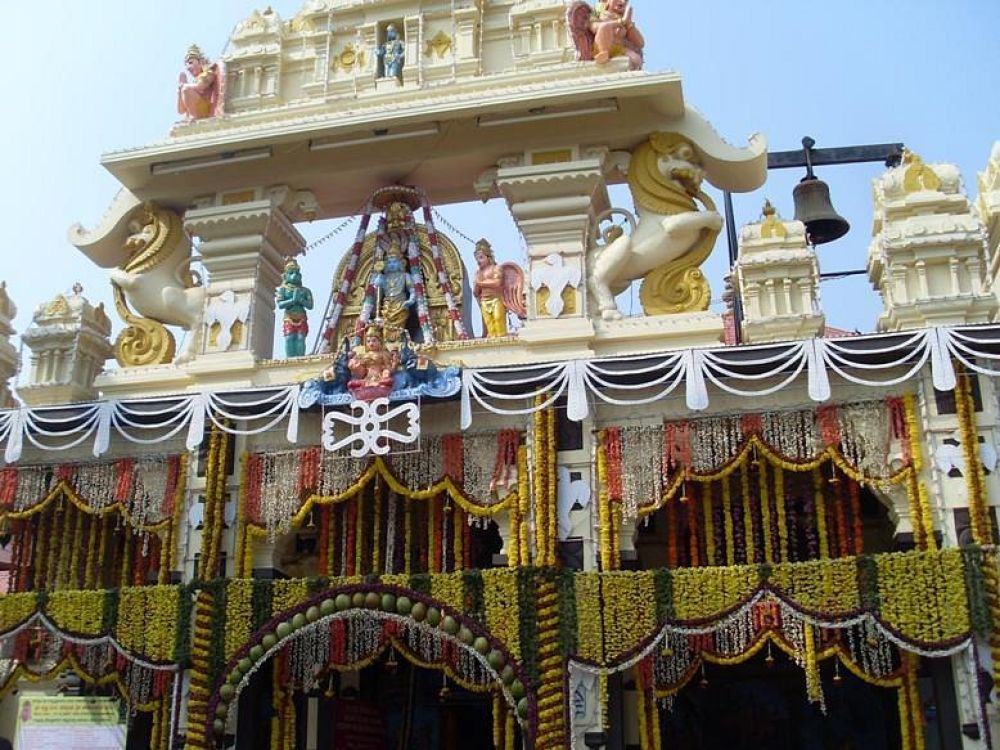

The Sri Krishna Temple in Udupi, Karnataka, India, has long been a significant destination for pilgrims and tourists alike, steeped in history and rooted in the Vaishnavite tradition. Udupi, also known as Rajata Peetha and Shivalli, is renowned for its historical Krishna temple, Madhva philosophy, and distinctive South Indian cuisine.
The history of the Sri Krishna Temple is closely associated with the 13th-century philosopher and theologian, Sri Madhvacharya. It is believed that Madhvacharya found the idol of Sri Krishna in a large block of Gopichandan clay. He installed this idol and established the practice of Dvaita philosophy, which became a fundamental part of the temple's teachings.
Since its establishment, the temple has been a center of pilgrimage, attracting followers of Lord Krishna and scholars from across India. The iconic institution of the 'Ashta Mathas' (eight monasteries) was also set by Sri Madhvacharya, which continues to play a pivotal role in the administration and religious life of the temple.
The architecture of Sri Krishna Temple is a testament to the ancient craftsmanship and cultural heritage of the region. The temple complex boasts a unique feature known as Kanakana Kindi – a small window through which Lord Krishna is said to have given darshan to his devotee, Kanakadasa. The temple chariot, used during the 'Rathotsava' (chariot festival), is a magnificent example of the woodwork and artistry that is native to Karnataka.
The tradition of pilgrimage to the Sri Krishna Temple Udupi is centuries old, with its annual festivals like Krishna Janmashtami and Paryaya Festival drawing vast numbers of devotees. Over time, the region has developed facilities for visitors, from accommodation options to guided tours, enhancing the tourism experience while preserving its religious significance.
Spiritual tourism remains the major trend, with Udupi being renowned for its religious harmony, actively promoting inclusivity within the wider domain of spiritual seekers. Today, the Sri Krishna Temple is not just a symbol of devoutness but also a center for cultural exchange, where traditional rituals intermingle with modern-day tourism.
Udupi is well-connected by road and rail, making it easily accessible to tourists from all over India. Notably, the temple town caters to a diverse range of tourists with varied accommodation facilities, ranging from affordable lodges to high-end hotels. Food is an integral part of the visitor experience, owing to the town's reputation for its Udupi cuisine, which is now famous worldwide.
In recent years, there has been a conscious effort to preserve the environmental integrity of Udupi while accommodating tourist influx. Initiatives are underway to implement sustainable practices in the day-to-day operations of the temple complex, such as waste management and use of renewable energy sources, to ensure that the spiritual and cultural landscape of Udupi remains intact for future generations.
As tourism trends evolve, Udupi and the Sri Krishna Temple are adapting to cater to a new generation of travelers seeking holistic experiences. Emphasis is being placed on immersive experiences that allow deeper engagement with the region's spirituality, culture, and history. Promoting responsible tourism that respects local traditions and the environment will continue to be at the forefront of Udupi's tourism strategy.